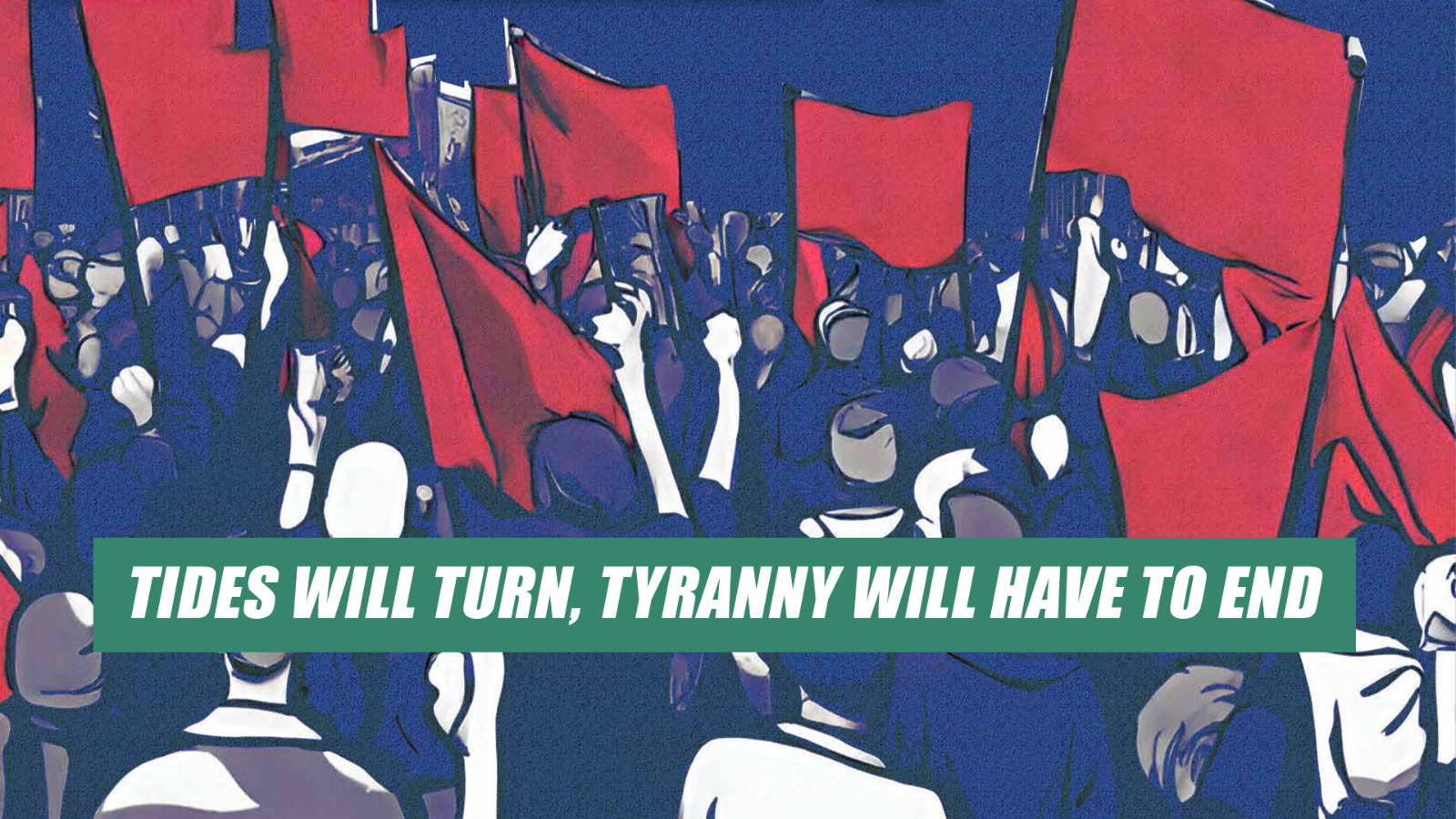Tides will turn, tyranny will have to end

The Modi government has evidently been rattled by the belated striking down of the Electoral Bond scheme by the Supreme Court and the disclosure of the donor and recipient details. Lawyers associated with the BJP have mounted an orchestrated campaign to harass the CJI and intimidate the judiciary. Prime Minister Modi has not only thrown his full weight behind this campaign by endorsing the letter signed by the dubious group of lawyers, he is missing no opportunity to justify the bonds system struck down as unconstitutional by the Supreme Court. The government which had told the Supreme Court that the people had no need or right to know about who donated to whom and how much, the party which had told the Election Commission that it did not maintain any record of the sources it received its electoral bonds from, is now praising the bonds for bringing transparency to corporate funding.
At a time when the Modi regime has been exposed to be the most corrupt regime in the history of independent India, the BJP has the gall to try and delegitimise the opposition as a coalition of corrupt parties and leaders. The Electoral Bond disclosures have revealed an intricate system of corruption which the government had thought would never get exposed. We now know that while several companies have used the scheme to secure contracts through bribery, many have donated after being raided, to buy impunity. There are also some who have been coerced into collaborating with the state to implicate opposition parties and leaders. The Delhi Liquor Policy case built up against AAP is a brazen example of this shocking technique of combined application of ED raids and the EB scheme to target an opposition party.
Today while frontline AAP leaders including Arvind Kejriwal are in jail in the Delhi Liquor Policy case, co-accused like P Sarath Reddy and Raghab Magunta Reddy who have turned approvers are out on bail. The latter is campaigning for his father Magunta Srinivasulu Reddy who is contesting from Ongole as an NDA candidate from TDP. The ED has been indiscriminately invoking the Prevention of Money Laundering Act against opposition leaders to keep them in jail for long periods without bail. Delhi government health minister Satyendra Jain has been in jail for the last two years and deputy CM and education minister Manish Sisodia for more than a year now. The arrest of Arvind Kejriwal has however evoked widespread protests in India and even given rise to international concern about the growing lack of fair play and justice in Modi's India. After languishing in jail for six months, AAP Rajya Sabha MP Sanjay Singh finally got bail when the Supreme Court took a strong stand and the ED did not have the courage to oppose his bail application any longer.
The BJP's rhetorical crusade against corruption has started sounding utterly hollow and hypocritical. From Himanta Biswa Sarma and Subhendu Adhikari to Ajit Pawar, Praful Patel and Naveen Jindal, leaders once denounced by the BJP as icons of corruption today enjoy pride of place in the BJP. Even Godi Media anchors are now forced to pose these questions to senior Modi cabinet ministers. In a recent interview with Navika Kumar of Times Now, finance minister Nirmala Sitharaman bluntly said that all tainted politicians were welcome in the BJP. A senior BJP leader in Madhya Pradesh described the Congress turncoats joining the BJP as dry or wet trash.
While the demand for the institution of a Supreme Court monitored SIT to probe the Electoral Bond disclosures gains traction, Justice B. V. Nagarathna, who had dissented on the 4-1 Supreme Court judgement on demonetisation, recently again reminded us that demonetisation had merely turned black money white. As much as 86% of the total currency in circulation had been demonetised through the banning of 500 and 1,000 rupee notes, and 98% of that amount got deposited and exchanged in banks in the wake of demonetisation. If black money was indeed held in cash, it thus became white without inviting any investigative and punitive action. Likewise, by allowing all kinds of companies including loss-making and shell companies to buy any amount of electoral bonds, the Electoral Bond scheme had actually facilitated money laundering and legalised corruption. The Electoral Bond disclosures therefore must be duly investigated to get to the root of the enormous bribes that have swelled the coffers of ruling parties, especially the BJP.
The nineteenth century English saying "power tends to corrupt, and absolute power corrupts absolutely" has acquired an uncanny resonance in Modi's India. The concentration of unbridled power in the hands of PM Modi and his close coterie has led to arbitrary economic decisions like demonetisation and electoral bonds which can only be described as brazen institutionalisation of corruption. The unconstitutional measures and their disastrous fallouts must now be reversed by citizens exercising their constitutional right to vote. The constitutional power of the people must prevail over the unconstitutional designs of the despotic Modi regime. Tides are turning, tyranny will have to end.
Charu Bhawan, U-90, Shakarpur, Delhi 110092
Phone: +91-11-42785864 | +91 9717274961 E-mail: info@cpiml.org

